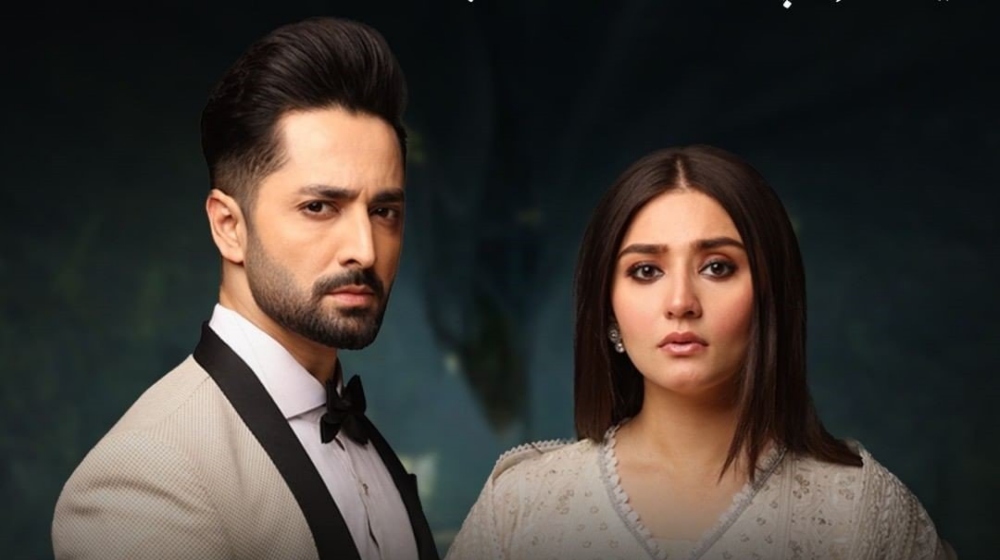Danish Taimoor’s performance and demeanor as Shamsher is the pull of “Kaisi Teri Khudgarzi.” Starring Danish Taimoor, Durr E Fishan, Noman Ejaz, Atiqa Odho, Shahood Alvi, Laila Wasti, Tipu Sharif and others in a story written by Radain Shah and directed by Ahmed Bhatti. This show is, essentially, the story of an influential man who turns stalker and exhibits criminal behavior, forcing the object of his affection to marry him. And while the show has a gripping narrative with great performances, are audiences losing focus of the message?
Episode 13 is huge in terms of plot. Mehak (Durr E Fishan) has done everything in her power to escape from Shamsher (Danish Taimoor), even pretending to be dead in order to start her life over. Her father has his job transferred so they can all start afresh together once again. Life seems ready to move on for Mehak after all her trauma…..all caused by Shamsher and his inability to take “no” for an answer. And then, tragedy strikes when Shamsher spots Mehak in Multan. If there has been any thought regarding Shamsher reforming or realizing his mistakes or the depth of his atrocities against Mehak and her family, this is the moment to sit up and realize…..he has only gotten worse.
Shamsher physically holds a gun to Mehak’s head, lashes out at her for “deceiving him” and then locks her up in a room in his house. He then calls her family over and points a gun at her sister’s head, forcing her father to convince Mehak to marry him “for the family’s future.” Through all this, Shamsher openly discusses his “love” for Mehak while she repeatedly shows her disgust and states that she does not want to be with him under any circumstances. But does her opinion matter? No, it does not. Only Shamsher’s opinion matters.
In this entire show, there are two things that are praise-worthy. The first is Danish Taimoor’s performance. He is intense, passionate and absolutely insane and that shines through with his performance. He does not break character even once and even when he’s mourning Mehak’s death, you can see that this feels like a personal loss to him, a personal failure. He was unable to “get” Mehak when he wanted her – and now that she’s alive, it’s back to square one. It’s genuinely a brilliant performance. The second thing that’s commendable is that the narrative hasn’t, even once, allowed us to sympathize for Shamsher. Shamsher is bad. This is shown even in his interactions with his Bhabi’s sister. He is heartless, even when heartbroken. This is a solid story on harassment, stalking and the abuse of power.
That being said, there is a problem with “Kaisi Teri Khudgarzi” and it’s entirely with the audience. One glance at a YouTube episode comments will paint a different picture, a picture where fans are lauding Shamsher, feeling for him and rooting for him to get his “love.” And if this is what’s being absorbed by the audience, who is at fault? How can this situation be rectified? Ultimately, it’s the message the audience is left with at the end that cements whether the show is applauded or panned by critics. Can we, as critics, accept an ending where a man like Shamsher is redeemed in any way, shape or form? It’s possible, sure, if we think about “Khaani.” But like “Khaani,” Shamsher cannot possible “get” Mehak. This is a character who must “pay” for his actions and must learn that he cannot possess a human being. While “Kaisi Teri Khudgarzi” is a good product so far and tells an interesting story, that messaging is what will seal the deal for this show. Is it promoting a toxic love story or is it sending a good message?
